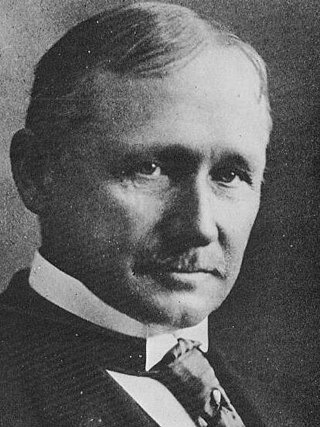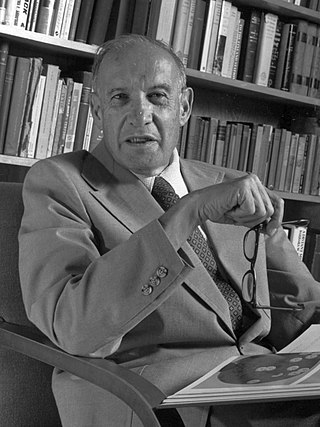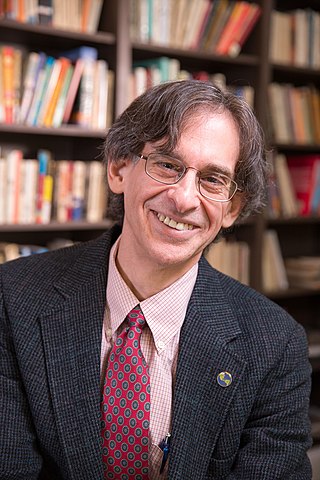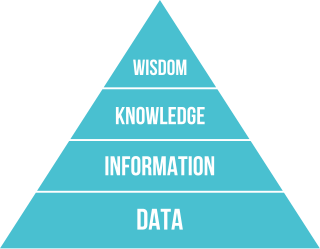
William Edwards Deming was an American business theorist, composer, economist, industrial engineer, management consultant, statistician, and writer. Educated initially as an electrical engineer and later specializing in mathematical physics, he helped develop the sampling techniques still used by the United States Census Bureau and the Bureau of Labor Statistics. He is also known as the father of the quality movement and was hugely influential in post-WWII Japan, credited with revolutionizing Japan's industry and making it one of the most dominant economies in the world. He is best known for his theories of management.

System dynamics (SD) is an approach to understanding the nonlinear behaviour of complex systems over time using stocks, flows, internal feedback loops, table functions and time delays.

Frederick Winslow Taylor was an American mechanical engineer. He was widely known for his methods to improve industrial efficiency. He was one of the first management consultants. In 1909, Taylor summed up his efficiency techniques in his book The Principles of Scientific Management which, in 2001, Fellows of the Academy of Management voted the most influential management book of the twentieth century. His pioneering work in applying engineering principles to the work done on the factory floor was instrumental in the creation and development of the branch of engineering that is now known as industrial engineering. Taylor made his name, and was most proud of his work, in scientific management; however, he made his fortune patenting steel-process improvements. As a result, scientific management is sometimes referred to as Taylorism.
The twelve leverage points to intervene in a system were proposed by Donella Meadows, a scientist and system analyst who studied environmental limits to economic growth.

Systems thinking is a way of making sense of the complexity of the world by looking at it in terms of wholes and relationships rather than by splitting it down into its parts. It has been used as a way of exploring and developing effective action in complex contexts, enabling systems change. Systems thinking draws on and contributes to systems theory and the system sciences.

Peter Ferdinand Drucker was an Austrian American management consultant, educator, and author, whose writings contributed to the philosophical and practical foundations of modern management theory. He was also a leader in the development of management education, and invented the concepts known as management by objectives and self-control, and he has been described as "the founder of modern management".

Jay Wright Forrester was an American computer engineer, management theorist and systems scientist. He spent his entire career at Massachusetts Institute of Technology, entering as a graduate student in 1939, and eventually retiring in 1989.
Common and special causes are the two distinct origins of variation in a process, as defined in the statistical thinking and methods of Walter A. Shewhart and W. Edwards Deming. Briefly, "common causes", also called natural patterns, are the usual, historical, quantifiable variation in a system, while "special causes" are unusual, not previously observed, non-quantifiable variation.

PDCA or plan–do–check–act is an iterative design and management method used in business for the control and continual improvement of processes and products. It is also known as the Shewhart cycle, or the control circle/cycle. Another version of this PDCA cycle is OPDCA. The added "O" stands for observation or as some versions say: "Observe the current condition." This emphasis on observation and current condition has currency with the literature on lean manufacturing and the Toyota Production System. The PDCA cycle, with Ishikawa's changes, can be traced back to S. Mizuno of the Tokyo Institute of Technology in 1959.

Russell Lincoln Ackoff was an American organizational theorist, consultant, and Anheuser-Busch Professor Emeritus of Management Science at the Wharton School, University of Pennsylvania. Ackoff was a pioneer in the field of operations research, systems thinking and management science.

Alfie Kohn is an American author and lecturer in the areas of education, parenting, and human behavior. He is a proponent of progressive education and has offered critiques of many traditional aspects of parenting, managing, and American society more generally, drawing in each case from social science research.

Dennis Lynn Meadows is an American scientist and Emeritus Professor of Systems Management, and former director of the Institute for Policy and Social Science Research at the University of New Hampshire. He is President of the Laboratory for Interactive Learning and widely known as a coauthor of The Limits to Growth.

The DIKW pyramid, also known variously as the DIKW hierarchy, wisdom hierarchy, knowledge hierarchy, information hierarchy, information pyramid, and the data pyramid, refers loosely to a class of models for representing purported structural and/or functional relationships between data, information, knowledge, and wisdom. "Typically information is defined in terms of data, knowledge in terms of information, and wisdom in terms of knowledge".The DIKW acronym has worked into the rotation from knowledge management. It demonstrates how the deep understanding of the subject emerges, passing through four qualitative stages: D – data, I – information, K – knowledge and W – wisdom

Management cybernetics is concerned with the application of cybernetics to management and organizations. "Management cybernetics" was first introduced by Stafford Beer in the late 1950s and introduces the various mechanisms of self-regulation applied by and to organizational settings, as seen through a cybernetics perspective. Beer developed the theory through a combination of practical applications and a series of influential books. The practical applications involved steel production, publishing and operations research in a large variety of different industries. Some consider that the full flowering of management cybernetics is represented in Beer's books. However, learning continues.
John Seddon is a British occupational psychologist and author, specialising in change in the service industry. He is the managing director of Vanguard, a consultancy company he formed in 1985 and the inventor of 'The Vanguard Method'. Vanguard currently operates in eleven countries. Seddon is a visiting professor at Buckingham University Business School.
Lean dynamics is a business management practice that emphasizes the same primary outcome as lean manufacturing or lean production of eliminating wasteful expenditure of resources. However, it is distinguished by its different focus of creating a structure for accommodating the dynamic business conditions that cause these wastes to accumulate in the first place.
Statistical thinking is a tool for process analysis of phenomena in relatively simple terms, while also providing a level of uncertainty surrounding it. It is worth nothing that "statistical thinking" is not the same as "quantitative literacy", although there is overlap in interpreting numbers and data visualizations.
Jamshid Gharajedaghi is an Iranian-American organizational theorist, management consultant, and Adjunct Professor of Systems thinking at Villanova University. He is known for his work of systems thinking, managing complexity, and business architecture.











